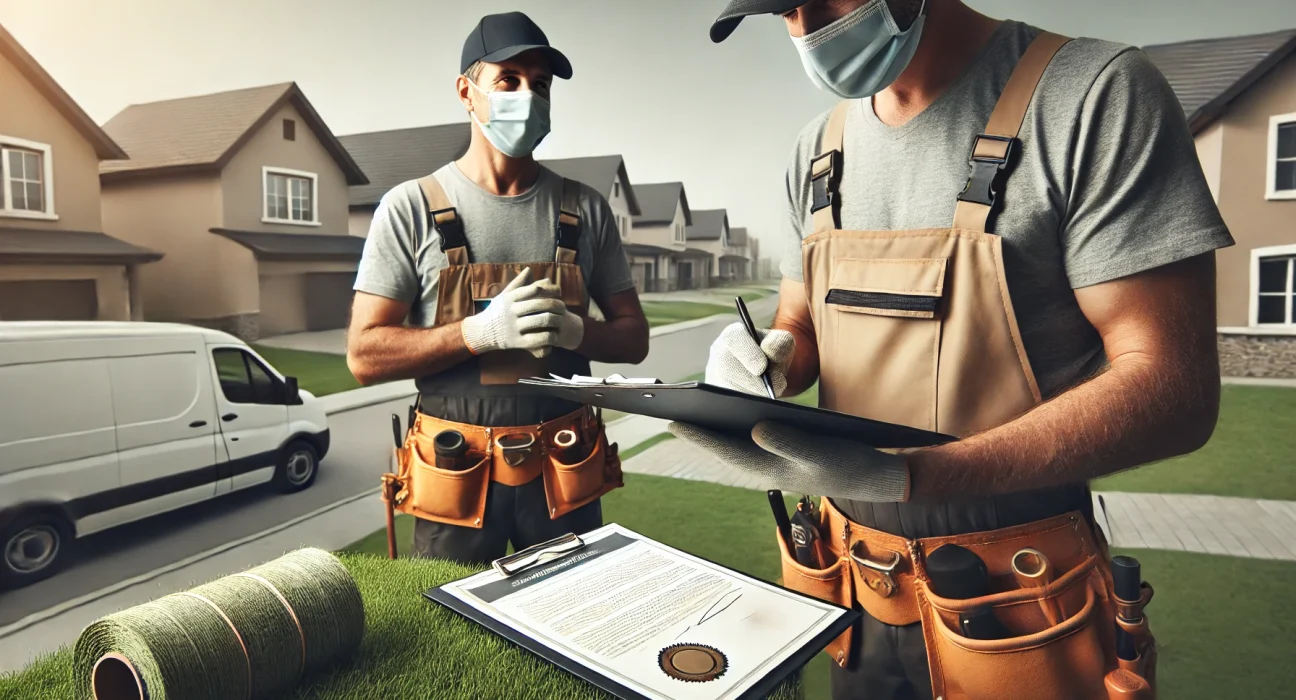Homeowners Associations (HOAs) are responsible for managing and maintaining their communities. This often involves hiring contractors to perform services like landscaping, repairs, renovations, or large-scale construction projects. A common question is, are HOAs required to obtain proof of insurance from contractors? Ensuring contractors have proper insurance coverage is a critical step in the process. This article explains why HOAs should always verify insurance, the types of insurance to look for, and the potential risks of skipping this step.
Why Insurance Matters for HOAs
Hiring contractors without verifying their insurance coverage can lead to serious problems for an HOA. Insurance protects the association from financial liability if something goes wrong during a contractor’s work. Here’s why it’s crucial:
Protection from Property Damage
Contractors working on HOA property may accidentally damage buildings, landscaping, or other community assets. General liability insurance ensures that the contractor’s insurance covers the costs of these damages, not the HOA’s funds.
Safety for Workers and Third Parties
Contractors or their employees might get injured on the job. Workers’ compensation insurance covers medical expenses and lost wages for these employees. Without this coverage, the HOA could be held financially responsible for workplace injuries.
Ensuring Professional Standards
Contractors with valid insurance demonstrate professionalism and responsibility. It shows they are prepared for potential risks and meet industry standards, giving the HOA confidence in their reliability.
Are HOAs Legally Required to Verify Insurance?
Whether HOAs are legally required to obtain proof of insurance from contractors depends on several factors:
State and Local Laws
Many states require contractors to carry specific types of insurance, such as general liability and workers’ compensation. While the law may not explicitly require HOAs to verify this coverage, it is often implied as part of responsible management.
HOA Governing Documents
An HOA’s governing documents, such as bylaws or CC&Rs (Covenants, Conditions, and Restrictions), often include rules about hiring contractors. These documents may specify that contractors must have insurance or that proof of insurance is required.
Even when not legally mandated, obtaining proof of insurance is a widely accepted best practice. It reduces liability and ensures compliance with any applicable laws or internal policies.
Types of Insurance HOAs Should Require
Different types of insurance provide different kinds of protection. HOAs should request the following types of insurance from contractors:
General Liability Insurance
Covers claims of property damage or bodily injury caused by the contractor’s work. This is the most basic and essential type of insurance.
Workers’ Compensation Insurance
Protects workers if they are injured while working on an HOA project. This insurance ensures that employees’ medical bills and lost wages are covered without the HOA being held liable.
Auto Insurance
If the contractor uses vehicles as part of the project, auto insurance is essential to cover any accidents or damages involving those vehicles.
Bonding Insurance
Provides additional security if the contractor fails to complete the project or breaches the terms of the contract. This is particularly important for large or long-term projects.
How HOAs Can Verify Insurance
Obtaining proof of insurance is not a complicated process, but it must be done thoroughly to ensure the HOA is adequately protected:
Request a Certificate of Insurance (COI)
A COI is a document issued by the contractor’s insurance company. It lists the types of coverage, policy limits, and expiration dates. This serves as official proof of insurance.
Confirm Policy Details
The HOA should verify the details on the COI by contacting the insurance provider directly. This ensures the policy is active and covers the type of work being done.
Ask to Be Listed as an Additional Insured
By requesting to be listed as an additional insured, the HOA is added to the contractor’s policy. This provides direct coverage for the HOA in case of claims related to the contractor’s work.
Consequences of Skipping Insurance Verification
Failing to verify a contractor’s insurance can lead to serious consequences for the HOA:
Liability for Accidents and Damages
If a contractor damages property or someone gets injured, the HOA may have to pay out of pocket if the contractor doesn’t have insurance.
Financial Losses
Lawsuits, medical bills, or repair costs can drain the HOA’s budget. This could lead to increased dues or special assessments for members.
Violating HOA Rules
If the HOA’s governing documents require proof of insurance, failing to obtain it could result in disputes among members or even legal challenges.
Best Practices for HOAs
To ensure smooth operations and minimize risks, HOAs should adopt the following best practices when hiring contractors:
Include Insurance Requirements in Contracts
Specify the types of insurance required and the coverage amounts in all contractor agreements.
Keep Records
Maintain copies of all COIs and related documents for future reference. This helps the HOA stay organized and prepared in case of disputes or audits.
Consult Professionals
Work with legal advisors or insurance experts to review contractor policies and ensure compliance with state laws and HOA rules.
Regularly Review Policie
Periodically update contractor hiring policies to reflect changes in laws, insurance standards, or community needs.
Conclusion
Requiring proof of insurance from contractors is a critical responsibility for HOAs. It ensures contractors are qualified and offers financial protection against accidents or damages. While legal obligations may vary, addressing the question “are HOAs required to obtain proof of insurance from contractors” highlights the importance of verifying coverage. By following best practices and conducting due diligence, HOAs can confidently hire contractors, protect their members, and maintain their communities with minimal risk.
FAQs
Why is it important for HOAs to obtain proof of insurance from contractors?
It protects the HOA from liability in case of accidents, injuries, or property damage during a contractor’s work. It also ensures contractors are professional, qualified, and financially prepared to handle risks.
What types of insurance should HOAs require from contractors?
HOAs should request general liability insurance, workers’ compensation insurance, auto insurance (if applicable), and bonding insurance for additional project security.
Are HOAs legally required to verify contractor insurance?
While specific legal requirements vary by state and local laws, most HOAs are expected to follow risk management best practices. Additionally, HOA governing documents often require proof of contractor insurance.
How can an HOA verify a contractor’s insurance is valid?
HOAs should request a Certificate of Insurance (COI) from the contractor and confirm its details by contacting the insurance provider. They can also ask to be listed as an additional insured on the policy.
What are the risks of hiring a contractor without insurance?
The HOA could be held liable for property damage, workplace injuries, or accidents caused by the contractor. This can result in financial losses, legal disputes, and increased costs for HOA members.
Article Recommendations
Is Taking Auto Insurance Quotes from Multiple Agents Bad? Here’s the Truth










